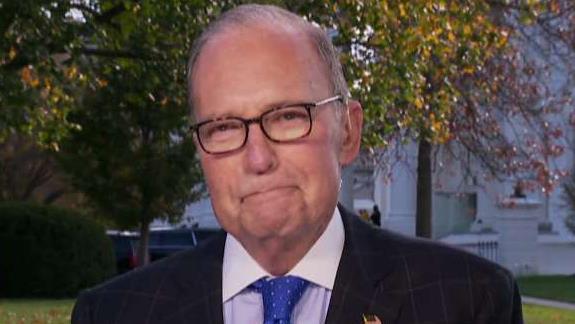Will Trump escape New York taxes with Florida move?
President Trump on Thursday night said he changed his residency to low-tax Florida after paying “millions of dollars” in taxes as a New York resident, but the process is likely to be more difficult than simply declaring a change of domicile.
As a high, net worth taxpayer, Trump is likely to come under scrutiny since New York is particularly “aggressive” in requiring taxpayers to prove that they actually moved with the intent to stay either permanently or indefinitely. He would need to spend less than 184 days in New York to avoid its tax obligations if he intends to keep his residence at Trump Tower.
Geoffrey Weinstein, special counsel in the Tax, Trusts & Estates Department of Cole Schotz, told FOX Business that anyone maintaining a residence in the state with an adjusted grow income in excess of $500,000 has between a 90 percent and 99 percent chance of being audited.
And while Democratic New York Gov. Andrew Cuomo said “good riddance” to the Trumps on Thursday – he probably does not want to lose their tax dollars. Cuomo blamed a $2.3 billion budget deficit at least in part on the newly implemented state and local tax, SALT, deduction cap – which has fueled an exodus of wealthy taxpayers.
TRUMP JOINS AMERICANS FLEEING HIGH-TAX NEW YORK FOR FLORIDA
WANT TO FLEE HIGH-TAX STATES LIKE NEW YORK? TURNS OUT IT'S NOT SO EASY
In order to dodge taxes in New York, however, Trump needs to do a lot to prove to the state that he has actually changed his residence.
“Like everyone else seeking the benefits of a no income tax state like Florida, he would need to do a lot more than file a declaration of domicile,” Weinstein told FOX Business. “I suspect he will need to show that he not only is he prepared to establish domicile in Florida, he will need to abandon ties to New York.”
That could be particularly problematic considering his family business is headquartered in New York.
“I think so much of this is going to depend upon where he ends after the presidency – that’s really the starting point of any exam,” Lou Vlahos, partner at law firm Farrell Fritz, told FOX Business.
Trump’s sons are running the Trump Organization while he is president, but if he returns to his role with the company after he leaves office, that could be a red flag for auditors – even if he is making decisions from his Palm Beach residence.
In order to sever all ties, Carl Icahn, for example, is moving his business to Miami, with plans to shutter his Manhattan office.
Additionally, auditors will look at a host of other items – including where his youngest son is attending school, Weinstein noted. If he does not go to school in Florida, it may be difficult to prove that Palm Beach is the family’s primary residence. Many of these factors are also subject to change once Trump leaves the White House.
Other items that would be taken into account are where the Trump’s “near and dear” personal items are kept and the number of days spent in each state.
Vlahos expects Trump to file his 2019 return as a part-year New York resident.
That situation could present an interesting case for auditors, who will be faced with whether to conduct a residency audit of a sitting president. The statute of limitations is three years from when the return is filed.
CLICK HERE TO GET THE FOX BUSINESS APP
Trump and his wife, First Lady Melania Trump, filed documents to change their official residences to Palm Beach, Fla., last month, as first reported by The New York Times on Thursday. Palm Beach is where Mar-a-Lago is located.
Florida has no statewide income tax, estate tax or inheritance tax. Meanwhile, New York's top income tax rate is more than 8 percent.
As Trump gets older the lack of an estate tax was likely a draw to Florida. Vlahos noted that the estate tax exemption amount in New York is very low, and it’s a 16 percent tax.





















